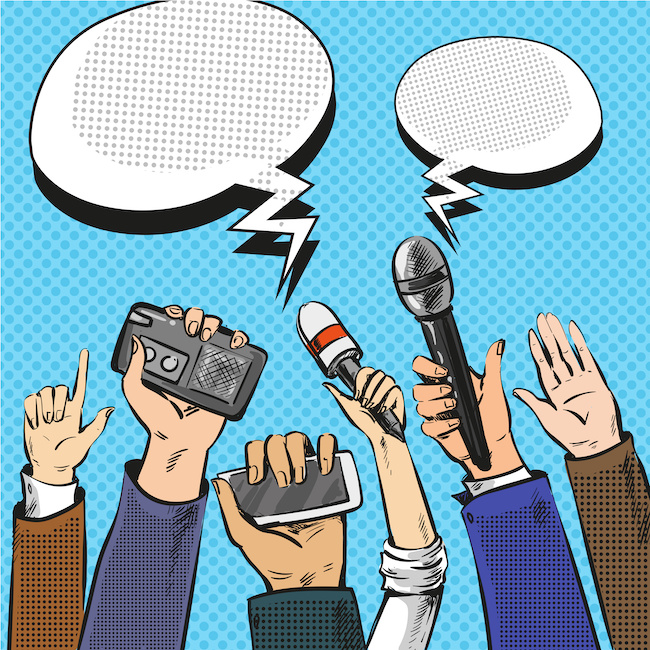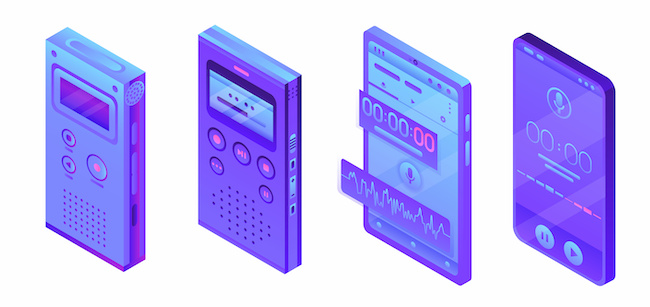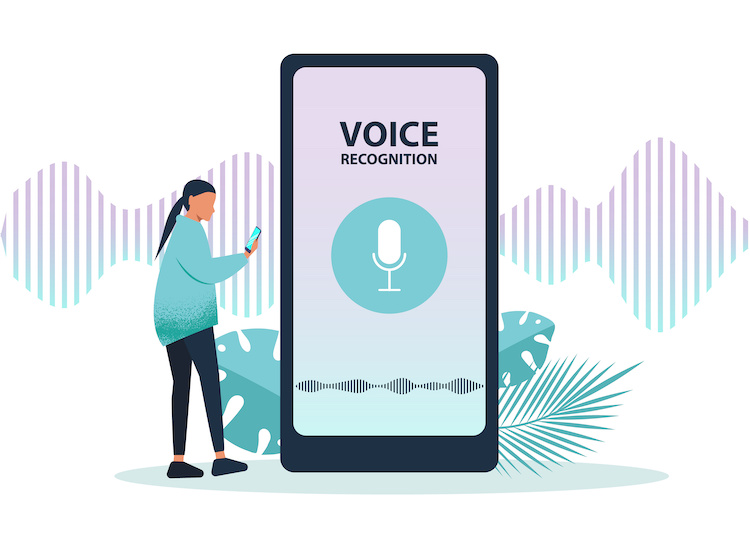As a writer, you often have an abundance of ideas to record, hours of research to collect, and more pages to write than you have time for. If this sounds like you, it might be time to start adding some of the best dictation software to your writing process.
Good news for the writers of the world: voice-to-text dictation software is readily available on a variety of applications and devices, and often less expensive than you may think.
Best of all, the technology is finally up to snuff and easily the beats the rudimentary versions you tried five or 10 years ago.
The average person types up to 30 words per minute, with dictation software you could “type” up to 150 words per minute. If you’re looking for a little help getting more words on the page, this is the perfect time to add some of this technology into your writing practice.
What to look for in dictation software
Dictation software has come a long way since it was first introduced. More products than even use AI technology to have better accuracy and speed-two of the most crucial aspects here. There are often multiple language options, the ability to use voice-to-text seamlessly within your word documents, and playback options to assist you in editing.
The difficult part about finding a dictation software is figuring out what you need and not wasting time on products that are either too simplistic or too robust for your needs.

3 Preliminary Questions to Ask
A good place to start is look for software that can be used with your technology preferences, is accurate, and is easy for you to use.
First, evaluate the software you currently use
When evaluating which dictation software is best for you, first identify all of the writing software and equipment you currently use for your writing process.
- Do you take notes and do your writing on an Apple device?
- Do you use Microsoft Word to write your manuscripts?
- What do you use to take notes for interviews?
Next, ask how you want to use voice-to-text dictation
Identify which specific steps of your writing process you would like to utilize dictation software. Common specific situations book authors might use voice-to-text dictation software could be:
- Brainstorming notes for your next article
- Live research interviews
- Character dialogue (if you’re working on some fiction in your spare time!)
- Transcribing the writing itself
Finally, determine your budget
Before diving in, decide what your budget is. Thankfully there are several free dictation options available to those looking to try it out, but also several software options available for purchase that are more versatile across platforms.

The Best Dictation Software: 5 Options to Speed Up Your Writing Process
Apple Dictation
- Cost: Free
- Software requirements: Only available for use with Apple products while online
- Accuracy: Good, but can be improved by allowing Apple to record your Siri commands and dictation
- Multiple languages
- Ease of use: Apple dictation is extremely simple to use, can be used from a keyboard function key and is best for short dictations, no more than 40 seconds at a time. It can handle basic character use, such as adding commas, periods, and spacing.
Apple dictation software is a great free tool for those with Apple products who are looking to seamlessly add in bits of dictation to their work, but not for the long-form writer trying to record continuously for long periods of time.
While not as robust of a tool as some options out there, it becomes more accurate and trained to your voice as you optimize the dictation. Because Apple dictation sends the audio to Apple to transcribe instantly, it does need to be used with an Internet connection.
Google Docs Voice Dictating
- Cost: Free
- Software requirements: Only available to Google users in the Chrome browser
- Accuracy: Users reported good accuracy with Google dictating. Users can easily edit document while still recording audio text to improve quality of dictation
- Multiple languages: available, but voice editing commands are only in English
- Ease of use: Simple to use, available without an additional download
Google Docs voice dictation is a great tool to use if you are already comfortable with using Google Docs for your writing and want a free tool included in the application. The recording function can be turned on and kept on for extended periods of time, even allowing editing to the text while you are still recording.
This is a great tool for writers who want their dictation software to fit seamlessly into what they already use and don’t want any additional costs. It does require an Internet connection to use and can only be used with Google Chrome.
Dragon Professional
- Cost: One payment of $699 USD
- Software requirements: Microsoft Windows 11
- Accuracy: Up to 99% accurate—with the help of advanced AI technology, Dragon provides extremely accurate dictation
- Ease of use: this product does require an initial download, but is very user-friendly, requiring little further set-up—Dragon Professional includes a playback feature that is an amazing tool for book authors specifically
This is one of the best dictation software available. With the help of top-of-the-line AI technology, the whole Dragon suite is up to 99% accurate, perfect for people who plan to use dictation software often. It is very versatile, easily used with a variety of applications such as Microsoft Word, Microsoft Outlook, or Gmail. Dragon has a variety of other dictation software for dictating in more specialized industries.
Braina Speech Recognition Software
- Cost: Varies
- Software requirements: Versatile
- Accuracy: Up to 99% accurate with AI technology
- Ease of use: Simple to use, but does require an initial download and occasional software updates
Braina Speech Recognition Software has four options:
- Braina Lite (free)
- Braina Pro ($99 USD for one year)
- Braina Pro Plus ($199 USD for two years)
- Braina Pro Ultra ($299 USD for three years)
One of the biggest differences between the Lite and Pro is that Pro has extensive languages and language commands available while Braina Lite is only available in English. Braina is very versatile, able to be used with both Android and Apple devices and on any website or browser.
If you use a variety of software and plan on doing a lot of dictation, Braina is a great option to keep transcriptions accurate and consistent between applications.
Otter
- Cost: Individual account is free (with the option to add more transcribing time with a paid Pro subscription at $8.33 USD a month)
- Software requirements: internet connection, may be used both on a computer and/or smartphone
- Accuracy: Good, and AI technology is constantly improving accuracy
- Ease of use: Easy to use with realtime recording, search feature can recall information from the text instantly.
Otter is a great option for people needing transcription for mainly research interviews or team collaborations. Along with the voice-to-text dictation, Otter also has a recording function that will store an audio version of the text. The text is all contained in the Otter’s user profile, which requires the user to download the text in order to use it in a different application.
While this is a great tool for dictation that involves other people, it may not be the best tool if you are mainly transcribing your own words.
When using dictation, be aware of the factors that will improve the accuracy of your dictation.
Speak clearly when using the voice-to-text transcription. Speak at a moderate volume and speed. Make sure to enunciate your words instead of mumbling or switching up your tempo.
Limit background noise as much as possible. If you often find yourself dictating documents or making audio recordings with a lot of activity around you, you might want to look into an AI noise-reducing application like the Krisp Noise Cancellation and Echo removal.
Be aware of where your microphone is on your device and test it out before attempting long-form dictation. If your application encourages you to spend a little time with the voice recognition training, give yourself time to complete the exercise.
Finally, try dictation tools several times and in a variety of ways before deciding if it is or isn’t beneficial for book writing. It takes time to build a new habit and even more time to see the potential benefits of using your voice to type.



